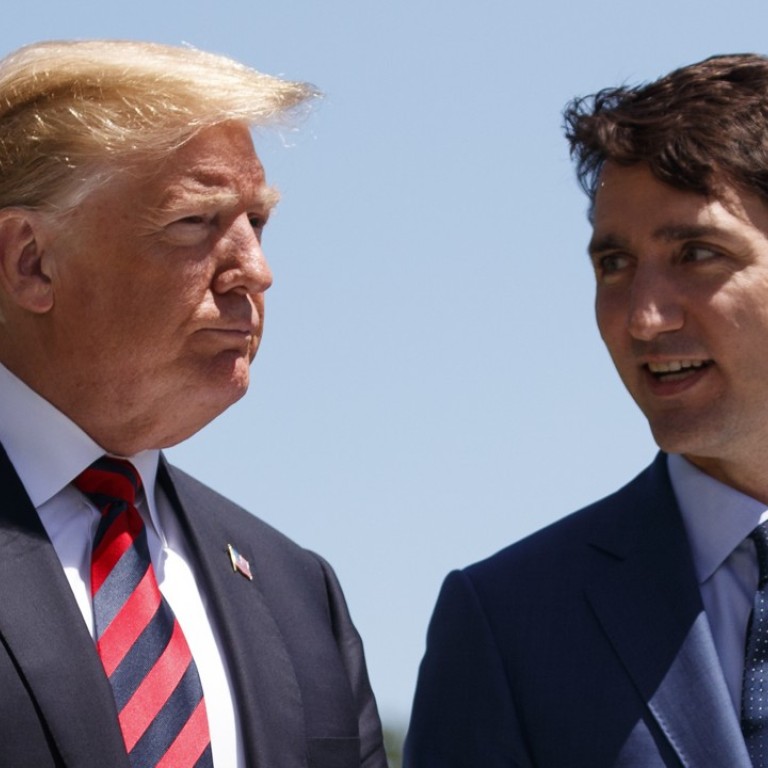
Trump, Trudeau and Brexit
The US leader’s harsh rhetoric, and the UK vote to quit the EU, have limited impact on Hong Kong students’ study plans
What impact does the “Trump, Trudeau, Brexit effect” have on university applicants from Hong Kong?
In broad terms, this refers to the less welcoming image of the United States and the United Kingdom in terms of immigration in general, and the relatively benign stance of Canada in this respect, over the past 18 months or so. More specifically, Trump’s “travel ban”, issued during his first months in office, threatened the college futures of many international students, particularly those from certain Muslim-majority countries.
A similar fate loomed over the futures of many European students whose freedom of movement and lower “home” fees were suddenly endangered by the Brexit referendum result. EU fee status is, however, currently guaranteed up to the 2018/19 academic year, and for the duration of that degree course.
In contrast, Canada’s relatively open policy towards international students, and the greater scope for such students to work and, ultimately, reside in Canada, seemed to present a more attractive prospect. Justin Trudeau’s broad and youthful smile, compared to Donald Trump’s belligerent rhetoric, tends to personify and reinforce this contrast.
In contrast, Canada’s relatively open policy towards international students, and the greater scope for such students to work and, ultimately, reside in Canada, seemed to present a more attractive prospect
Perception can be a powerful thing and, ignoring the extent to which this is supported by the details, we can see tangible effects on student numbers in this period. Though statistics vary depending on source and focus, there has been a decline in both international students and student visas issued in the US over this period.
While it is more pronounced at graduate level, and is in single percentage figures, it contrasts with a period of steady growth over the past decade and is a cause for concern at many individual colleges.
Concurrent with this decline was a 10.7 per cent increase in international student enrolment in Canada, with a 15.6 per cent increase in British Columbia alone: no wonder that my students applying to the University of British Columbia (UBC) in 2016/17 were finding it much harder than those with the same grades in previous years. That, we could say, is one possible effect on Hong Kong applicants, and one that should encourage them to look beyond the “brand” institutions of UBC, Toronto and McGill and recognise the uniform level of quality that exists in Canadian higher education.
I was invited to the US Consulate a few months ago for a round table discussion with their education representatives, as well as those dealing specifically with visas. It was clear that there was concern over declining numbers of applications and our hosts were keen to point out the very small number of visas that were actually denied – I think the figure was less than 2 per cent. My own experience over the past 20 years is that few, if any, of my students have had any problems with their F1 visa applications (for undergraduate study), including many ethnic-minority applicants. I realise, however, that is scant consolation to those who have had difficulties in this respect.
The spectre of Brexit hung over the UCAS Conference I attended last summer in Manchester and, despite the efforts of UK universities to be as upbeat as possible, the atmosphere was a little sombre. Their main fear was not only the drop in EU student numbers but also the imminent loss of EU staff, academic and non-academic, as well as the collaborative relationships that they had developed with their European counterparts.
Though there is no direct effect on Hong Kong applicants – apart from EU passport holders – the longer term loss of diversity and the enrichment that EU students and faculty bring to a UK university may influence potential undergraduates.
Having said that, I’ve always been a little surprised at the enduring popularity of UK higher education with Hong Kong students and families over the years and it shows few signs of waning.
Subjective elements often inform our decisions, including university choices and, like Donald Trump, Hong Kong students may need to distinguish the “fake news” from reality more so now than ever.
The good news is that overseas universities like Hong Kong students very much indeed for their talent, work ethic and trustworthy credentials. With the demographic trend of fewer school leavers in most developed countries, the demand for international applicants in general is likely to remain robust.

